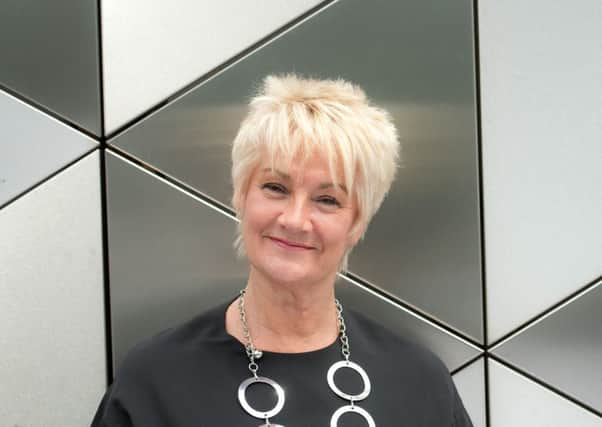Interview: Ros Taylor, CEO of Ros Taylor Company
This article contains affiliate links. We may earn a small commission on items purchased through this article, but that does not affect our editorial judgement.


Executive coaching has never been more fashionable. After a downturn in the years immediately following the financial crisis, leadership development has regained its pre-recession momentum as companies increasingly seek to develop emotional intelligence in their senior leaders.
The pursuit of soft skills has led to a proliferation of experts with advice on how to tackle corporate issues ranging from the promotion of collaboration and innovation to management diversity and optimum personal performance. But despite the variety of ways in which it manifests itself, clinical psychologist Ros Taylor says pretty much every workplace dilemma boils down to a single factor.
Advertisement
Hide AdAdvertisement
Hide Ad“It’s easy to spot a lack of confidence in situations like public speaking and presentations, or in those who shy away from putting themselves forward,” she says. “It is a common thread for males and females, although women mention it more often.
“But it’s there in other ways as well. If a leader is not confident, they will not hire people who are better than them. They will hold people back so that they can shine.”
An author of seven books who frequently appears on television and radio, Taylor set out in executive coaching back when the vocation barely had a label. Today her company, with its main offices in Edinburgh and London, has 20 coaches running programmes, workshops and courses subscribed to by large financial, pharmaceutical and corporate customers in the UK, Europe and beyond.
Taylor had no specific ambitions growing up other than going to university. She started out studying English, History and French at the University of Glasgow, but switched into psychology in her second year.
After graduating she spent a brief spell as a social worker in Greenock where she “loved” working with the patients despite their often-complex challenges, but was prone to questioning authority and the status quo.
She transferred to the psychiatric hospital at Dykebar in Paisley where she would ultimately spend 12 years taking patients referred from general practice for “all types of problems”. Along the way she returned to Glasgow to complete a Masters in psychology.
A bit of a free spirit who likes to keep her options open, Taylor encountered one of several turning points in her life towards the end of her postgraduate work.
Growing up, she was a member of the Scottish Junior Singers. That progressed into five years singing with Scottish Opera, which extended an offer for Taylor to join fulltime when she was finishing her Masters. Realising she didn’t have quite the talent to make it to the highest level, she chose to complete her academic studies and carry on with her work at Dykebar.
Advertisement
Hide AdAdvertisement
Hide AdShe was still asking questions though, and after putting forward the case for earlier intervention, she and a small team transferred out of the psychiatric hospital to the nearby Linwood Medical Centre. To help overcome the constraints of brief consultation periods, she starting writing literature to help patients understand their issues.
Sensing a need to assist those with issues not deemed to be “clinical”, she and a colleague set up a business on the side where people could work through relationship and work conflicts during evenings and weekends. Known in the mid-1980s as Lehman Taylor, that evolved through the years into today’s Ros Taylor Company.
Though it doesn’t cater specifically to females, the firm has developed a “Women as Leaders” course that to date has taken through ten cohorts from industries such as construction, pharmaceuticals and the financial sector. To date, about 40 per cent of participants have achieved significant promotion.
Taylor admits she is still at times “amazed” that these gender issues persist.
“Of course there is much more involved around diversity than just women, but that is the major one,” she explains. “We are 49 to 51 per cent of the population, depending on where you are, and yet nowhere near that in terms of senior management or boardroom level.”
As for making the business case for gender diversity, Taylor believes it only makes sense for women to have a voice at senior level.
“When you have it, you have got that additional insight, and it steers decision-making that drives business growth.”
30-SECOND CV
Born: Falkirk, 1949
Raised: Glasgow
Education: Jordanhill School; University of Glasgow
First job: Working in John Smith’s Bookshop in Glasgow
Ambition at school: I don’t really know. My mother wanted me to be a teacher
Can’t live without: Intellectual stimulation
Advertisement
Hide AdAdvertisement
Hide AdKindle or book? I’ve got the iPad for novels, and the Kindle is good on holiday, but for work and reference materials, I want books
Favourite city: There are so many. I love a city
Preferred mode of transport: I fly everywhere, but cycling would be good
What car do you drive? A Peugeot RCZ
What makes you angry? I am really not an angry person, but I have worked quite hard at that
Best thing about your job: What can be better than helping people become what they want to be?